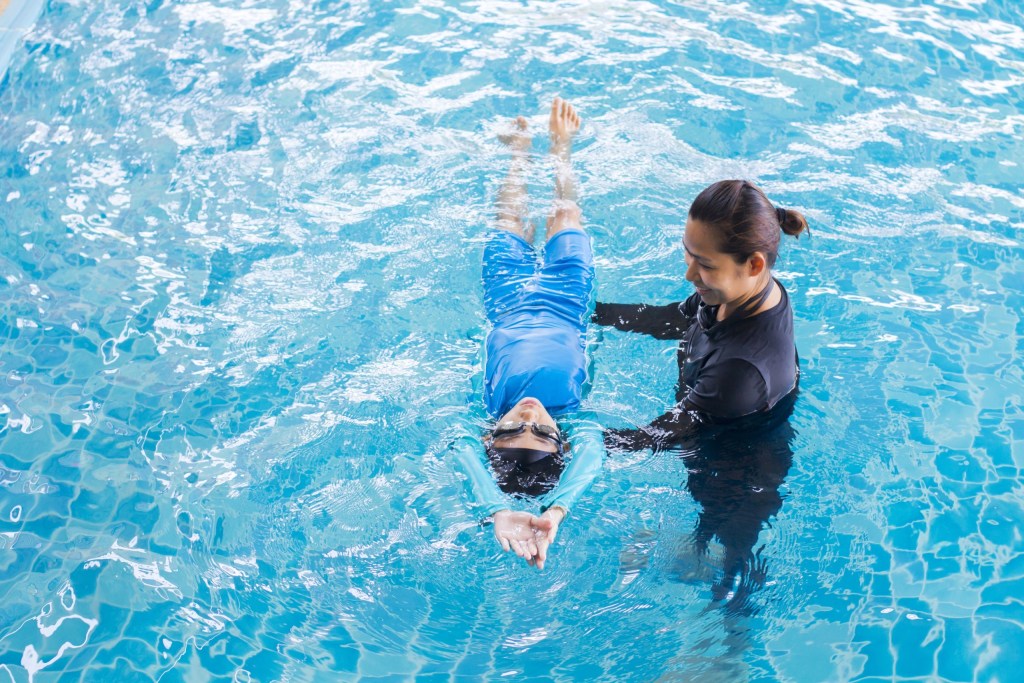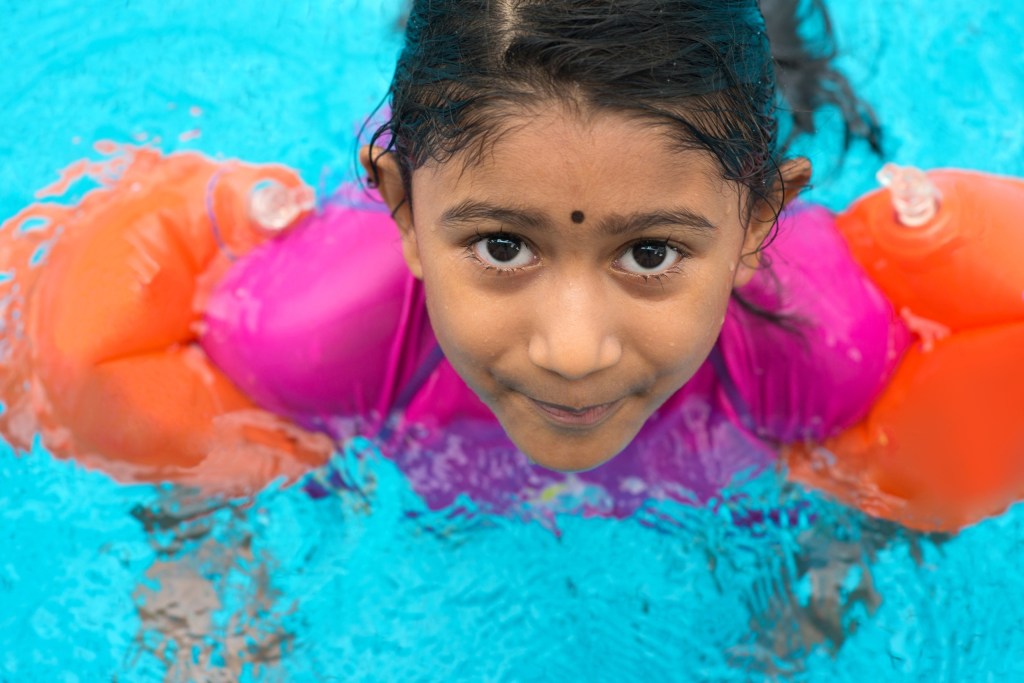Learning to swim can be an exciting time in children’s lives. There is something special about getting into a body of water to cool off, engaging in play, or spending time as a family. Being in the water will make you feel weightless and free to move around more easily, which is often why children enjoy swimming so much. It can also be equally as thrilling for parents, who may be hoping to build lasting memories, enhance their children’s skills, and strengthen their children’s ability to remain safe no matter what the situation may be.
When children are small, parents may find the idea of a pool — or water safety in general — a big issue that should be addressed. But how soon is too soon for your children to learn to swim? When can babies swim? Is there an ideal time to introduce your child to water safety to prevent the No. 1 fatality related to injury among youth?
“In 2017, drowning claimed the lives of almost 1,000 U.S. children younger than 20 years.” — The American Academy of Pediatrics
What the experts have to say
According to the American Academy of Pediatrics (AAP) website, “In 2017, drowning claimed the lives of almost 1,000 U.S. children younger than 20 years.” It is with this reasoning the AAP recommends children as young as 1 year old can begin learning the principles of swimming and water safety. Prior to 2010, the AAP recommended children begin swim lessons and/or water-safety training once they reach the age of 4. A case study, led by Dr. Ruth Brenner was released in 2009, showed children between the ages of 1 and 4 could very well be taught water-safety skills.
Additionally, the study’s conclusion showed a decrease in the number of childhood fatalities attributed to drowning. It was after the release of this study that the AAP reconsidered its stance on the matter.
“We’re not going so far as to say that because of this study all children over age 1 should rush out and get swim lessons,” said Jeffrey Weiss, a medical doctor with the AAP, taken from the policy-change meeting in May of 2010. He goes on further by saying that “We no longer recommend against it.”
If your child is 4 years old or older, now may be a good time to start considering swim lessons for them — to teach them to swim. These lessons are vital in the prevention of drowning and can provide reassurance to children in a very stressful and scary situation. When children are taught how to swim by a trainer or other youth-swimming instructor, they are taught to stay calm and relaxed. This not only allows them to think more clearly on how to remove themselves from the situation, but it also prevents panic.
When someone, including youth, panics in the water, their body fights against itself, often worsening their condition. It may even cause the person to become distressed and take on water — possibly ending in an unfortunate circumstance.

Why is it so important for infants to learn how to swim?
The primary purpose of infant swimming lessons is not to overwhelm children or expect them to learn the fundamental strokes in swimming at such a tender age. The idea is centered more toward teaching infants and toddlers how to remove themselves from harm — should they find themselves submerged in water. This can happen in seconds — and infants that have been taught the early steps of water safety are much more likely to survive should they suffer an accidental tumble into water.
Over the past several years, the popularity of self-setup, soft-sided, backyard pool systems have posed a more elevated risk for youth drownings. These systems often have little, if any, gating or fencing to prevent accidents or injuries, making them a higher risk for families with small children. While these risks are heightened, this is not to say that these types of pool systems are bad. On the contrary — they are much more efficient and inexpensive options to experience outdoor fun during the warmer months.
As with any type of pool system, it’s important to speak with your child about being in and around the pool, and to never enter it without an adult present.

Final thoughts
Water-safety courses as well as youth swimming lessons are both fantastic tools parents can utilize to help assist their children in learning how to be safe in any body of water. As previously mentioned and further recommended by the AAP, infants and toddlers have the capability to learn these skills not in the way of mastering strokes or gliding across the pool from one end to the other.
They are taught basic survival skills that allow them to quickly realize they are unsafe and must move to a safe area as fast as possible to avoid further injury or even death. Once they are cognizant of their surroundings should an accident occur, children who have been taught basic water-safety skills are much more likely to survive such an accident.
While the exact timeframe of when your child may be ready for such learning is not an exact science, parents should be able to start considering the possibility of introducing their child to this type of learning sooner than they may have realized. As always, please speak with your child’s pediatrician prior to any final decision being made — this allows them to weigh in and assist you in your decision-making based on your child’s individual needs.



